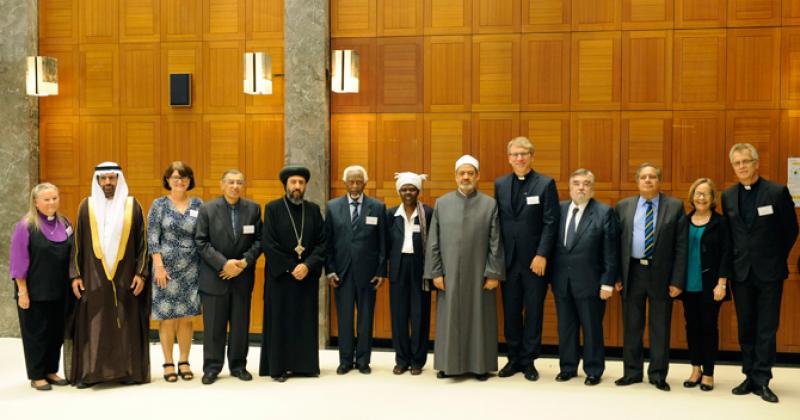A historic meeting took place between the World Council of Churches (WCC) and the Muslim Council of Elders, chaired by Grand Imam of Azhar Ahmed Tayeb, at the WCC headquarters in Geneva Switzerland on September 30-October 1, 2016. This meeting indicated the possibility or rather the need to enact cooperation among intellectual centers so as to reinforce the culture of mutual acceptance and respect among followers of religions.
In spite of the "conflagration" currently raging in our dear region, and in other parts of the world, it is important and impressive to have the world listen to the voice of reason, wisdom and logic which cannot be attained unless cooperation become the norm of the age. The train of dialogue has left the station starting a journey, particularly with regards to religious dialogue, shifting from rhetoric to urging all people to cooperate and to jointly get involved in the field of construction.
The term “the culture of peace’’ was repeated in the conference sessions, where attention was focused on disseminating this “culture’’ in regions where interests are at crossroads, as well as where new cultures and artificial values crop up. It is important to go back to the genuine roots of culture in order to make sure that it is constructive rather than destructive, as well as it enhances human rights and basic freedoms foremost which deal with religion and the right to expression. The meetings focused on the role of religious leaders and religious institutions in this regards as well as supporting efforts designed to promote peace. Being followers of God’s Prophet Abraham, we believe that people are born to share love, conviviality, peace, mercy, honesty and sincerity.
There is definitely a vital role for the followers of religions and for religious leaders in making peace, as there is a relationship between poverty and violence which are associated with religion. That is why the participants in the conference called on religious leaders to work for the attainment of justice and peace for all mankind, as well as to spread religious values and cooperation among the followers of religions, since this is the only way to combat extremism, to give hope to people, and to call for empowering young people to be active members in their communities. The participants in the meeting also stressed the need to have everybody enjoy equal rights and responsibilities being citizens in their countries. It is important also to reaffirm that people are citizens and believers who have duties towards their homeland and society as they also have rights and duties towards their religions and places of worship.
It's important to focus on the following five common points which the World Council of Churches and the Muslim Council of Elders underlined, and which serve as a suitable basis for local, regional and international meetings:
First: Rejection of all forms of bigotry and racial discrimination based on religion, ethnicity, gender or origin.
Second: Encouraging religious leaders to work hand-in-hand with the local authorities in order to expose the sound image of religions.
Third: Supporting and repeating successful initiatives like the “Family House” imitative which was launched by the Azhar in cooperation with Coptic Orthodox Church and other Egyptian Churches. We can in this respect point out our Jordanian successful initiatives.
Fourth: Looking for suitable means to encourage women’s serious contribution in the process of peace-building.
Fifth: Encouraging all efforts designed to stop arms race that threatens the security of all peoples, and calling to direct these resources to fight poverty, illiteracy, and disease which the poor and the rich nations suffer from alike.
